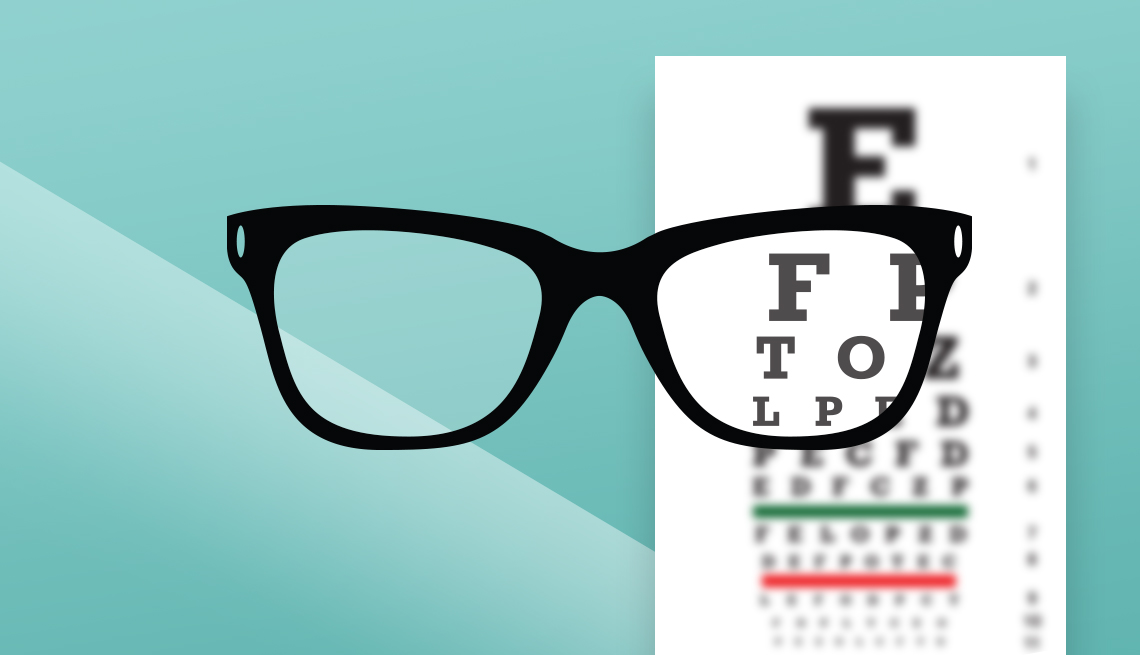Leading Cardiologist in Andalusia: Specialist Heart Treatment at Your Local Center
Leading Cardiologist in Andalusia: Specialist Heart Treatment at Your Local Center
Blog Article
Is Refractive Surgical Procedure Right for You? Factors to Think About for Better Eyecare
In the realm of eye care, the decision to undergo refractive surgery is a significant one that requires thoughtful factor to consider. From the details of one's eye wellness to the details of day-to-day behaviors and individual expectations, each facet holds value in the wider landscape of refractive surgical treatment candidacy.
Eye Health Evaluation
When considering refractive surgery, an extensive eye health assessment is essential to assess the suitability of the treatment for each person. eye doctors in andalusia. This evaluation entails a collection of assessments and examinations carried out by an eye treatment specialist to determine the overall health of the eyes, the visibility of any kind of hidden conditions, and the security of the refractive mistake
Throughout the assessment, different factors are taken into consideration, such as the client's case history, existing eye prescription, corneal density, student dimension, and tear film high quality. These analyses assist to recognize any kind of contraindications to refractive surgical procedure, such as corneal irregularities, cataracts, or without treatment eye infections. Additionally, the examination helps to manage patient assumptions regarding the prospective end results of the surgery based upon their one-of-a-kind eye qualities.
Inevitably, the eye wellness evaluation is vital in making certain the safety and effectiveness of refractive surgery, as it offers useful understandings right into the person's eye wellness status and helps determine the most suitable treatment choices for accomplishing ideal aesthetic results. (eye doctors in andalusia)
Lifestyle Evaluation
A complete way of life evaluation is integral in identifying the viability of refractive surgical procedure for an individual's aesthetic correction requirements. Lifestyle variables such as profession, hobbies, and day-to-day activities play a critical role in the decision-making process relating to refractive surgery.
In addition, lifestyle practices such as sporting activities participation, outside tasks, or even skincare regimens can affect the healing process and general success of refractive surgical procedure. For instance, individuals that take part in contact sports may require to take added precautions to safeguard their eyes during the recovery period. In addition, individuals with comprehensive sun exposure may need extra post-operative like protect against complications. By conducting an extensive way of life evaluation, eye treatment experts can customize their referrals and therapy strategies to fulfill the unique needs of each patient, ultimately leading to improved visual outcomes and contentment.
Assumption Alignment

Clients require to comprehend that while several individuals accomplish 20/20 vision or better adhering to refractive surgery, some might still need glasses for particular activities like analysis or driving at night. Taking care of these expectations assists stop disappointment and dissatisfaction post-surgery, leading to a more favorable general experience for the patient.
Danger Evaluation

Variables that may increase the danger of complications consist of age, particular medical problems like autoimmune diseases, unsteady vision prescription, slim corneas, and unrealistic individual expectations. Furthermore, picking a proficient and knowledgeable cosmetic surgeon, adhering to pre and post-operative treatment instructions vigilantly, and divulging any appropriate case history can help reduce eye doctors in andalusia dangers.
To decrease the likelihood of problems, ophthalmologists carry out detailed pre-operative evaluations to determine any type of contraindications to surgical treatment. They additionally review the potential risks and benefits with clients during the examination procedure. By taking part in open interaction and shared decision-making, both the eye doctor and the patient can interact to determine if refractive surgery is the ideal option based on private threat profiles and wanted end results.
Appointment Relevance
Considering the crucial role of educated decision-making in examining dangers and prospective issues in refractive surgical treatment, the assessment procedure holds substantial relevance in guiding individuals towards optimum results. During the consultation, the eye doctor evaluates the individual's eye health, refractive mistakes, and overall suitability for surgical procedure. This initial evaluation is important in determining one of the most suitable procedure for each individual, taking into consideration elements such as corneal density, student size, and existing eye conditions.
Furthermore, the consultation functions as a possibility for clients to review their assumptions, issues, and any type of inquiries they may have pertaining to the surgery. Clear interaction in between the doctor and the person is important to make sure realistic assumptions and a comprehensive understanding of the possible threats and advantages entailed.
Additionally, the assessment enables the cosmetic surgeon to clarify the various medical choices available, their respective results, and the post-operative care needed. This thorough conversation equips individuals to make knowledgeable decisions regarding their eye care, leading to better complete satisfaction and outcomes post-surgery.
Conclusion
Finally, individuals considering refractive surgical treatment must undertake a comprehensive eye wellness examination, analyze their lifestyle routines, straighten their expectations with prospective results, analyze the connected threats, and focus on consultations with eye care professionals. These variables play a vital function in identifying the suitability of refractive surgical treatment for each and every person, making certain optimum end results and complete satisfaction with the treatment.
Patients considering refractive surgery frequently have high assumptions pertaining to the end results, anticipating best vision without the requirement for glasses or get in touch with lenses. While refractive surgical treatment can considerably enhance vision and decrease dependency on aesthetic aids, it is critical for people to recognize that outcomes may vary based on private aspects such as the degree of refractive error, corneal density, and overall eye health.
By involving in open interaction and shared decision-making, both the patient and the eye doctor can function together to establish if refractive surgical treatment is the appropriate option based on specific danger profiles and preferred outcomes.
Taking into consideration the vital role of educated decision-making in evaluating threats and potential issues in refractive surgical treatment, the appointment process holds substantial value in guiding clients towards optimal outcomes. During the assessment, the ophthalmologist examines the individual's eye health, refractive mistakes, and general viability for surgical treatment.
Report this page